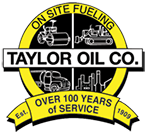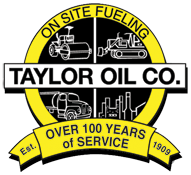Diesel Exhaust Fluid Storage: Onsite Storage Tips – Changes in emission standards back in 2010 specifies that truck manufacturers must include selective catalytic reduction systems in their diesel-powered vehicles. As such, diesel exhaust fluid (DEF) is a key component of those systems. An onsite supply of DEF ensures your fleet of trucks can always access the fuel it needs to run efficiently.
Going along with that, it’s important to maintain proper storage conditions in order to preserve the integrity and shelf life of your onsite DEF supply over time. Here are some storage tips:
1. Maintain the Right Temperature
Temperature control has a big impact on DEF shelf life. It’s recommended that you store DEF between 12 degrees Fahrenheit and 86 degrees Fahrenheit. Anything outside this range may compromise quality.
Low temperatures can make DEF freeze, and then you won’t be able to use it till it thaws. High temperatures will form ammonia in the DEF, which reduces quality and negatively affects truck performance.
It’s best to store it at temperatures below 65 degrees Fahrenheit, which will allow for up to two years of storage without sacrificing quality.
2. Keep DEF Away From Direct Sunlight
Where your onsite DEF storage tank is located will directly impact the quality of your supply. Your holding tanks should be placed in shaded areas away from direct sunlight so DEF doesn’t evaporate.
DEF is a non-hazardous solution comprised of urea and deionized water. The urea concentration should be at least 32.5% in order to meet EPA emissions guidelines.
Direct sunlight can cause evaporation of water, which changes the urea. Its effectiveness will be reduced and its usable lifespan shortened.
3. Utilize a Closed-Loop DEF Transfer System
With a closed-loop transfer system, you can move DEF from your onsite storage tank to the trucks’ holding tanks without the risk of contamination.
Keep in mind, DEF is very sensitive to chemical impurities. Even the smallest amount of phosphorus, magnesium, sodium, calcium, or potassium may compromise the contents of your storage tank. In fact, even trace amounts of tap water left in the tank after cleaning it out can change the composition and purity of your DEF supply.
With a closed-loop transfer system, your DEF does not come into contact with outside contaminants. This will help to avoid engine shutdowns, selective catalytic reduction system malfunctions, and other damage that could occur to the engine from contaminated DEF reserves.
Proper storage techniques allow you to maintain a high quality onsite supply of DEF that meets strict EPA standards.
Taylor Oil offers quick, efficient and quality onsite fueling for fleets throughout the Northeast. To schedule 24/7 onsite equipment fueling with us, call today!


